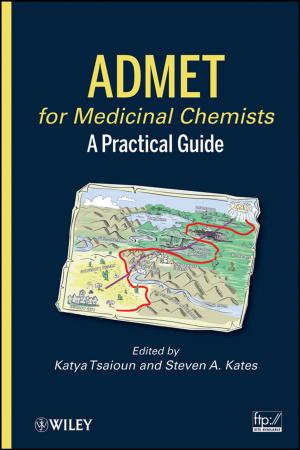Risk Propagation Assessment for Network Security
Application to Airport Communication Network Design
Nonfiction, Science & Nature, Technology, Telecommunications| Author: | Mohamed Slim Ben Mahmoud, Nicolas Larrieu, Alain Pirovano | ISBN: | 9781118581018 |
| Publisher: | Wiley | Publication: | April 8, 2013 |
| Imprint: | Wiley-ISTE | Language: | English |
| Author: | Mohamed Slim Ben Mahmoud, Nicolas Larrieu, Alain Pirovano |
| ISBN: | 9781118581018 |
| Publisher: | Wiley |
| Publication: | April 8, 2013 |
| Imprint: | Wiley-ISTE |
| Language: | English |
The focus of this book is risk assessment methodologies for network architecture design. The main goal is to present and illustrate an innovative risk propagation-based quantitative assessment tool. This original approach aims to help network designers and security administrators to design and build more robust and secure network topologies. As an implementation case study, the authors consider an aeronautical network based on AeroMACS (Aeronautical Mobile Airport Communications System) technology. AeroMACS has been identified as the wireless access network for airport surface communications that will soon be deployed in European and American airports mainly for communications between aircraft and airlines. It is based on the IEEE 802.16-2009 standard, also known as WiMAX.
The book begins with an introduction to the information system security risk management process, before moving on to present the different risk management methodologies that can be currently used (quantitative and qualitative). In the third part of the book, the authors’ original quantitative network risk assessment model based on risk propagation is introduced. Finally, a network case study of the future airport AeroMACS system is presented. This example illustrates how the authors’ quantitative risk assessment proposal can provide help to network security designers for the decision-making process and how the security of the entire network may thus be improved.
Contents
Part 1. Network Security Risk Assessment
- Introduction to Information System Security Risk Management Process.
- System Security Risk Management Background.
- A Quantitative Network Risk Management Methodology Based on Risk Propagation.
Part 2. Application to Airport Communication Network Design - The AeroMACS Communication System in the SESAR Project.
- Aeronautical Network Case Study.
The focus of this book is risk assessment methodologies for network architecture design. The main goal is to present and illustrate an innovative risk propagation-based quantitative assessment tool. This original approach aims to help network designers and security administrators to design and build more robust and secure network topologies. As an implementation case study, the authors consider an aeronautical network based on AeroMACS (Aeronautical Mobile Airport Communications System) technology. AeroMACS has been identified as the wireless access network for airport surface communications that will soon be deployed in European and American airports mainly for communications between aircraft and airlines. It is based on the IEEE 802.16-2009 standard, also known as WiMAX.
The book begins with an introduction to the information system security risk management process, before moving on to present the different risk management methodologies that can be currently used (quantitative and qualitative). In the third part of the book, the authors’ original quantitative network risk assessment model based on risk propagation is introduced. Finally, a network case study of the future airport AeroMACS system is presented. This example illustrates how the authors’ quantitative risk assessment proposal can provide help to network security designers for the decision-making process and how the security of the entire network may thus be improved.
Contents
Part 1. Network Security Risk Assessment
- Introduction to Information System Security Risk Management Process.
- System Security Risk Management Background.
- A Quantitative Network Risk Management Methodology Based on Risk Propagation.
Part 2. Application to Airport Communication Network Design - The AeroMACS Communication System in the SESAR Project.
- Aeronautical Network Case Study.















